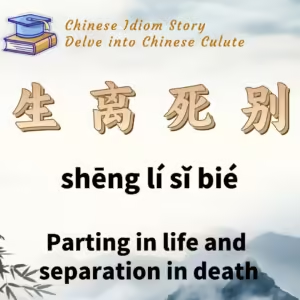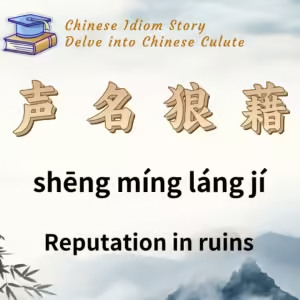
Chinese Idiom: 生离死别 (Sheng Li Si Bie)
English Translation: Parting in life and separation in death
pīn yīn: shēng lí sǐ bié
Idiom Meaning: This idiom is used to describe a profound and permanent separation, one that is either extremely difficult to bear or final and irrevocable, such as a parting that lasts through life and beyond death.
Historical Source: Poem by the Tang dynasty poet Du Fu, titled Meng Li Bai (《梦李白》).
Idiom Story:
Li Bai, born in 701 AD, and Du Fu, born in 712 AD, were both prominent poets of the Tang dynasty. Despite their turbulent lives and infrequent meetings, they shared a deep mutual respect due to their similar ideological perspectives.
In 759 AD, Du Fu decided to leave his official position and settle in Chengdu, Sichuan, to live in a thatched cottage. During his journey to Sichuan, he passed through Qinzhou and heard that Li Bai had been serving as an advisor in the army of Prince Li Lin, who was later executed for rebellion. Li Bai, who had been previously exiled to Yelang (now Tongzi County in Guizhou) due to accusations of associating with rebels, was still imprisoned.
Unaware that Li Bai had been pardoned and released, Du Fu worried for his friend’s life. The constant worry and longing led Du Fu to dream of Li Bai frequently, prompting him to write two poems about his grief. The opening lines of the first poem express his sorrow:
“Deadly parting has silenced my voice; Living separation is always heartbreaking.”
These lines reflect Du Fu’s lament over the finality of death and the ongoing pain of separation during life. The idiom “生离死别” (shēng lí sǐ bié) emerged from these lines, capturing the essence of enduring and deep separation, whether in life or in death.






